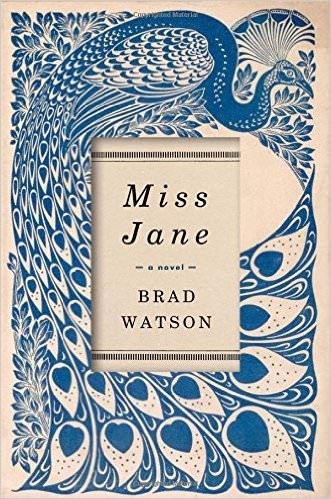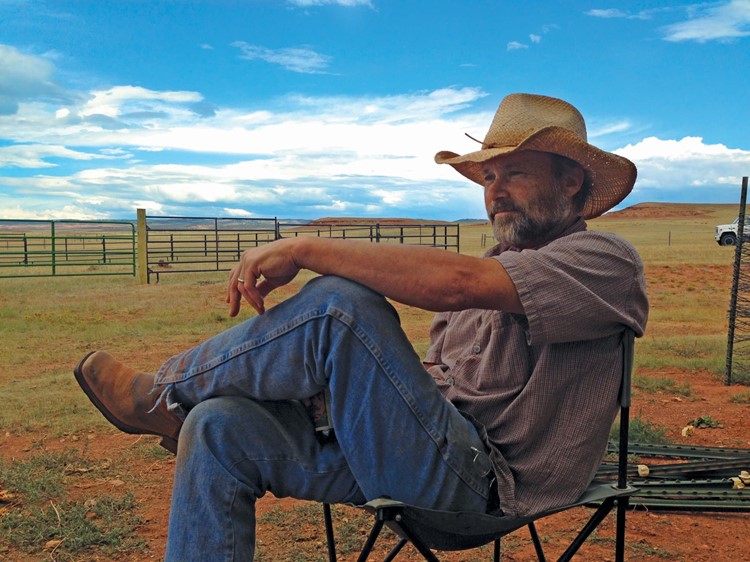
I am so excited to be sharing my first interview for 2017 with such an incredible and talented author. Miss Jane ended up making my top ten list, for my 2016 reading, right at the very tail end of the year. I just knew that it would be such a treat to share an interview with the author, Brad Watson, in our series. The sincerity and assuredness in his writing give the reader the feeling of reading a timeless classic and I appreciate Brad’s vulnerability in sharing the challenges of writing this book.
I am always astounded and thankful that even when a work is so incredibly challenging that it takes over a decade to write, he kept at it because they know this story must be told.
As a reader, it makes me appreciate a book so much more.
I had been dying to talk about this book with someone so I had the MomAdvice Book Club read it and then I read it with my local book club too. It’s one of those kinds of books that you want to research more when you finish. In fact, I’d love to chat with you in the comments when you finish it too!

If I was going to pick a book that surprised me the most, it would be, Miss Jane. Watson pens the story of his great-aunt, Miss Jane, and her struggles with a genital birth defect that alters Jane’s life path greatly. Set in the early twentieth century in rural Mississippi, Jane knows that she is not like other girls. Her struggles with this defect every moment of her day are told in ways that often feel unfathomable.
Her kind doctor takes her under his wing and has honest discussions with her about limitations and continuing research to try to help her. He becomes her confidant in a time of true loneliness. As she ages, she knows that her biggest hurdle will be having her own love story and Watson writes poetically of Jane’s love for a boy. Yet, in a time when a woman’s most useful task is to bear children, Jane knows that her love story must be a different one and she bravely accepts what this path looks like.
Her kind doctor takes her under his wing and has honest discussions with her about limitations and continuing research to try to help her. He becomes her confidant in a time of true loneliness. As she ages, she knows that her biggest hurdle will be having her own love story and Watson writes poetically of Jane’s love for a boy. Yet, in a time when a woman’s most useful task is to bear children, Jane knows that her love story must be a different one and she bravely accepts what this path looks like.
The peacock design on this cover is beautifully woven into this story and brings together all the beauty in this gorgeous book. It reads like a well-versed literary classic. I doubt you won’t fall in love with Miss Jane too.
Grab your coffee and let’s chat with the wildly talented, Brad Watson!

First of all, your book is absolutely beautiful from start to finish and one of my very favorite reads in 2016. I am so incredibly honored to share your story with our readers.
I understand that the story for Miss Jane was based upon your great-aunt, but you had very little information to go on to carve out her story. Did you find not having a lot of information created more freedom as a writer or did you find it more challenging that so much needed to be imagined for her life?
Thank you, Amy. I didn’t have much to go on, it turns out. My great aunt died in 1975, long before I decided to write a story inspired by hers – then I found out her story was mostly unknown. Most who’d really known her were gone, and those remaining hadn’t know her that well. My mother remembered generalities about her condition, but no one knew what it was, specifically. There were no surviving medical records or nursing home records. And the more I looked into probable conditions, the more of them didn’t make sense. It took me several years to settle on a plausible condition, and only then could I really make any progress on the novel. I couldn’t imagine her life, daily or long-term, without deciding on the condition that would have so defined her – initially, and after she decided how she was going to live with it.
After much research, you concluded that the diagnosis that would have fit best for Miss Jane would have been persistent cloaca. As readers, we get to experience the smallest fraction of her continued pain, discomfort, and difficulties that she would have struggled with. Did you also imagine these experiences or did you read about other people’s experiences, with this disorder during this time?
Whether my lack of talent at research or a real lack of information out there, I simply could not find accounts of people with that condition, living in that time. I read whatever I could find, but there wasn’t much literature about it because of the condition’s relative rarity. And perhaps there was too much shame. And perhaps a lot of babies died soon after birth. But I found nothing about it in Hugh Young’s seminal book on urogenital disorders, published around the time my character would have been a teenager.
Nature plays such a large role in Miss Jane understanding her own body and sexuality. From the stinkhorn, to how the animals mate on the farm, and even to the beautiful peacock that graces the cover of the book, these moments help bring understanding for Miss Jane. Why did you want to use nature to help guide her toward a better understanding of herself and how did you build this element of discovery for her? Was it through your own observations as a child or was it witnessing things later when visiting the land she grew up on that shaped this important element?
Visiting the land where she (and my mother, in the next generation) grew up was part of it. Being a loner child who loved roaming the woods was part of it. But necessity finally drove me to take her in that direction, finally. What is this girl, isolated physically and socially by her secret condition, to do with herself when she’s not working, doing chores for her mother? She tried school and couldn’t do that. So she took walks, and in the woods she found a world that was accepting, the natural world, because the natural world is a place where some of the strangest, oddest things are no more unnatural than anything else. A stinkhorn mushroom belongs in the forest as much as does a wildflower. A possum is as much as a deer or bobcat or bird or a bat or a toad. Nothing is alienated or reviled or ostracized in the forest. The possum is not ugly in the forest. In the woods, Jane is just another variation on the innumerable creations in the world.
Each of your characters are so beautifully developed that I found myself attached to each one. I know Miss Jane must hold the sweetest spot in your story, but who happened to be your other favorites to write? Were any of these special characters based on real people in your family?
Dr. Thompson, of course, was a favorite; in fact, at one point I worried he was going to take over the story, which forced me to find ways to allow Jane and the other characters to become more interesting than they were at the moment. He rose the bar. But then I began to find the deeper, more complex and interesting parts of Mrs. Chisolm, Mr. Chisolm, and Jane, herself. But he was the first one who really opened the door to the novel’s narrative voice.
For those that don’t know, you really poured your heart and soul into this book for over a decade. What do you think you have gained the most from the process of writing this particular book and how did you power through this difficult moments of creation when it ended up taking longer than you thought it did?
It was the hardest story and character to get a grip on I’ve faced so far. For a long time I really worried I would not be able to write it. But I’m pretty stubborn, and also whenever I would try to work on something else, Jane stayed lodged in the back of my mind, providing interference. It was finally something I had to finish, one way or another, in order to move on. It took too long, really. And I really emptied the well. There was nothing left in me when I finally turned Miss Jane in for good. I’m embarrassed I had such a hard time writing what turns out to be a pretty simple story. But it was not only understanding someone so foreign to me, personally, but also figuring out how to tell such a person’s story. I’d read very little fiction about characters so alienated from society, from other human beings, in a way that could not really be overcome, that must be instead accepted and bent to that person’s advantage in whatever small ways possible. It was very much a line-by-line, word-by-word effort. And in the end I had more drafts, trying to get it just right, than I’d ever put down on anything, short story or novel. Once I knew what the story should sound like, feel like, what its limitations were and where it could go that other stories might not, it was a backing up and very careful proceeding once again into the whole of it, language, people, world around them and in them. Some novels need as much care and attention as a short story or a poem. This seemed to be one of them.
In a time where women find value and worth from having children and marriage, Jane has to find her value in other ways. Do you think your aunt would have been proud of the way you told her story? What is the message you would love your readers to take away from sharing this story?
I never met my great aunt. I saw her once, when I was very young, and thereby caught the first inkling of her mystery. From what my mother and a cousin or two told me, I gathered that she was strong, private, and kept herself in good spirits, at least in public or among others. She kept her condition a secret, and people didn’t talk about it. I don’t think she would have wanted this book out while she was alive. I felt good about it because I was writing a story about someone with a very strong character, resilience, determination to live a life as full and as dignified – as as free – as was humanly possible for her. I was writing out of admiration – and, later, wonder.

You can connect with Brad Watson on his website! I’m always thankful for these moments with writers and I hope you will pick up this amazing book! You can always connect with me on GoodReads, through our books section of our site, and you can read our entire Sundays With Writers series for more author profiles. Happy reading, friends!
*This post contains affiliate links!
Pin It